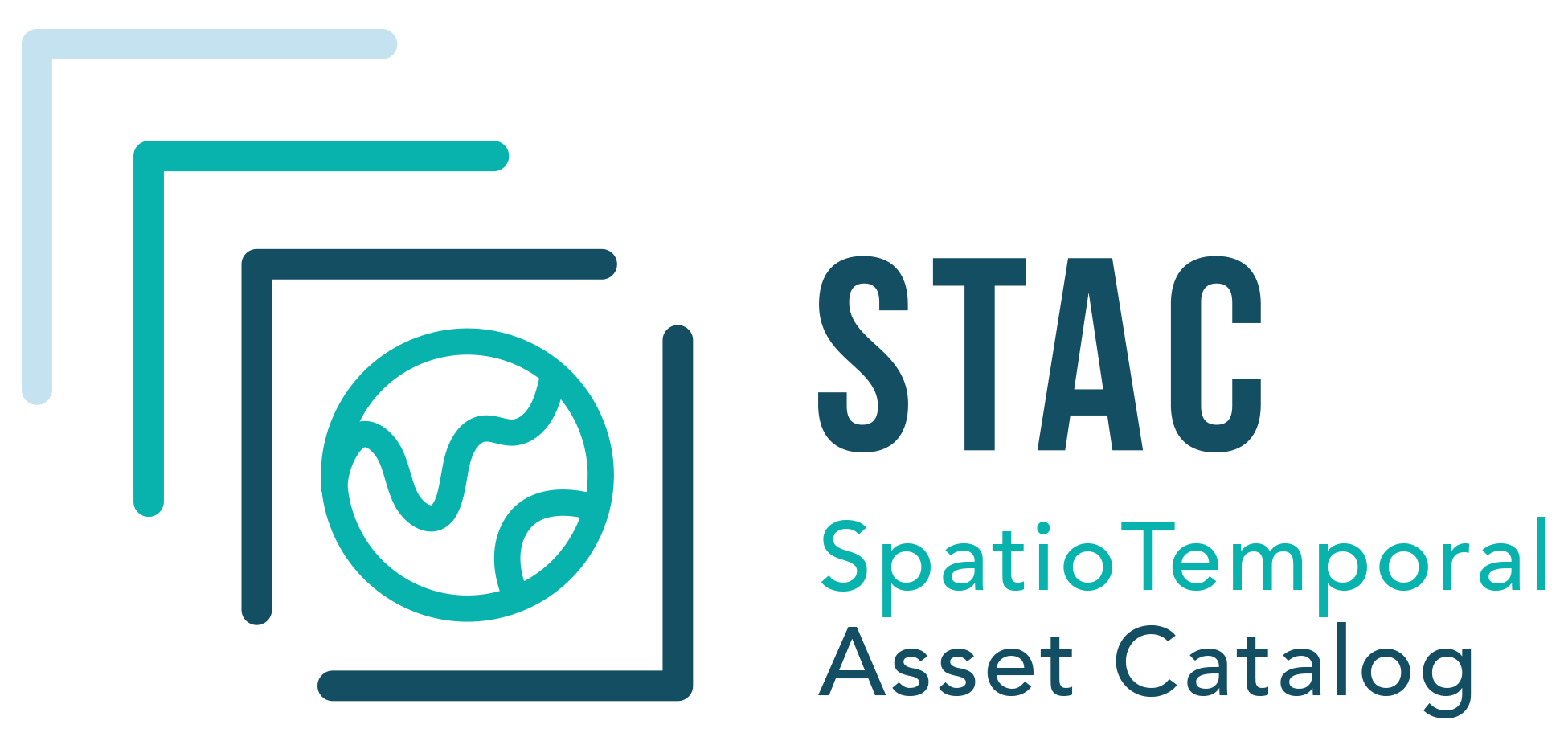"""Implements the :stac-ext:`Timestamps Extension <timestamps>`."""
from __future__ import annotations
from collections.abc import Iterable
from datetime import datetime
from typing import Any, Generic, Literal, TypeVar, Union, cast
import pystac
from pystac.extensions.base import (
ExtensionManagementMixin,
PropertiesExtension,
SummariesExtension,
)
from pystac.extensions.hooks import ExtensionHooks
from pystac.summaries import RangeSummary
from pystac.utils import datetime_to_str, map_opt, str_to_datetime
T = TypeVar("T", pystac.Item, pystac.Asset, pystac.Collection)
SCHEMA_URI = "https://stac-extensions.github.io/timestamps/v1.1.0/schema.json"
PUBLISHED_PROP = "published"
EXPIRES_PROP = "expires"
UNPUBLISHED_PROP = "unpublished"
[docs]class TimestampsExtension(
Generic[T],
PropertiesExtension,
ExtensionManagementMixin[Union[pystac.Item, pystac.Collection]],
):
"""An abstract class that can be used to extend the properties of an
:class:`~pystac.Item` or :class:`~pystac.Asset` with properties from the
:stac-ext:`Timestamps Extension <timestamps>`. This class is generic over the type
of STAC Object to be extended (e.g. :class:`~pystac.Item`, :class:`~pystac.Asset`).
To create a concrete instance of :class:`TimestampsExtension`, use the
:meth:`TimestampsExtension.ext` method. For example:
.. code-block:: python
>>> item: pystac.Item = ...
>>> ts_ext = TimestampsExtension.ext(item)
"""
name: Literal["timestamps"] = "timestamps"
[docs] def apply(
self,
published: datetime | None = None,
expires: datetime | None = None,
unpublished: datetime | None = None,
) -> None:
"""Applies timestamps extension properties to the extended Item.
Args:
published : Date and time the corresponding data
was published the first time.
expires : Date and time the corresponding data
expires (is not valid any longer).
unpublished : Date and time the corresponding data
was unpublished.
"""
self.published = published
self.expires = expires
self.unpublished = unpublished
@property
def published(self) -> datetime | None:
"""Gets or sets a datetime object that represents the date and time that the
corresponding data was published the first time.
'Published' has a different meaning depending on where it is used. If available
in the asset properties, it refers to the timestamps valid for the actual data
linked to the Asset Object. If it comes from the Item properties, it refers to
timestamp valid for the metadata.
"""
return map_opt(str_to_datetime, self._get_property(PUBLISHED_PROP, str))
@published.setter
def published(self, v: datetime | None) -> None:
self._set_property(PUBLISHED_PROP, map_opt(datetime_to_str, v))
@property
def expires(self) -> datetime | None:
"""Gets or sets a datetime object that represents the date and time the
corresponding data expires (is not valid any longer).
'Expires' has a different meaning depending on where it is used. If
available in the asset properties, it refers to the timestamps valid for the
actual data linked to the Asset Object. If it comes from the Item properties,
it refers to to the timestamp valid for the metadata.
"""
return map_opt(str_to_datetime, self._get_property(EXPIRES_PROP, str))
@expires.setter
def expires(self, v: datetime | None) -> None:
self._set_property(EXPIRES_PROP, map_opt(datetime_to_str, v))
@property
def unpublished(self) -> datetime | None:
"""Gets or sets a datetime object that represents the date and time the
corresponding data was unpublished.
'Unpublished' has a different meaning depending on where it is used. If
available in the asset properties, it refers to the timestamps valid for the
actual data linked to the Asset Object. If it comes from the Item properties,
it's referencing to the timestamp valid for the metadata.
"""
return map_opt(str_to_datetime, self._get_property(UNPUBLISHED_PROP, str))
@unpublished.setter
def unpublished(self, v: datetime | None) -> None:
self._set_property(UNPUBLISHED_PROP, map_opt(datetime_to_str, v))
[docs] @classmethod
def get_schema_uri(cls) -> str:
return SCHEMA_URI
[docs] @classmethod
def ext(cls, obj: T, add_if_missing: bool = False) -> TimestampsExtension[T]:
"""Extends the given STAC Object with properties from the :stac-ext:`Timestamps
Extension <timestamps>`.
This extension can be applied to instances of :class:`~pystac.Item` or
:class:`~pystac.Asset`.
Raises:
pystac.ExtensionTypeError : If an invalid object type is passed.
"""
if isinstance(obj, pystac.Item):
cls.ensure_has_extension(obj, add_if_missing)
return cast(TimestampsExtension[T], ItemTimestampsExtension(obj))
elif isinstance(obj, pystac.Asset):
cls.ensure_owner_has_extension(obj, add_if_missing)
return cast(TimestampsExtension[T], AssetTimestampsExtension(obj))
else:
raise pystac.ExtensionTypeError(cls._ext_error_message(obj))
[docs] @classmethod
def summaries(
cls, obj: pystac.Collection, add_if_missing: bool = False
) -> SummariesTimestampsExtension:
"""Returns the extended summaries object for the given collection."""
cls.ensure_has_extension(obj, add_if_missing)
return SummariesTimestampsExtension(obj)
[docs]class ItemTimestampsExtension(TimestampsExtension[pystac.Item]):
"""A concrete implementation of :class:`TimestampsExtension` on an
:class:`~pystac.Item` that extends the properties of the Item to include properties
defined in the :stac-ext:`Timestamps Extension <timestamps>`.
This class should generally not be instantiated directly. Instead, call
:meth:`TimestampsExtension.ext` on an :class:`~pystac.Item` to extend it.
"""
item: pystac.Item
"""The :class:`~pystac.Item` being extended."""
properties: dict[str, Any]
"""The :class:`~pystac.Item` properties, including extension properties."""
def __init__(self, item: pystac.Item):
self.item = item
self.properties = item.properties
def __repr__(self) -> str:
return f"<ItemTimestampsExtension Item id={self.item.id}>"
[docs]class AssetTimestampsExtension(TimestampsExtension[pystac.Asset]):
"""A concrete implementation of :class:`TimestampsExtension` on an
:class:`~pystac.Asset` that extends the Asset fields to include properties
defined in the :stac-ext:`Timestamps Extension <timestamps>`.
This class should generally not be instantiated directly. Instead, call
:meth:`TimestampsExtension.ext` on an :class:`~pystac.Asset` to extend it.
"""
asset_href: str
"""The ``href`` value of the :class:`~pystac.Asset` being extended."""
properties: dict[str, Any]
"""The :class:`~pystac.Asset` fields, including extension properties."""
additional_read_properties: Iterable[dict[str, Any]] | None = None
"""If present, this will be a list containing 1 dictionary representing the
properties of the owning :class:`~pystac.Item`."""
def __init__(self, asset: pystac.Asset):
self.asset_href = asset.href
self.properties = asset.extra_fields
if asset.owner and isinstance(asset.owner, pystac.Item):
self.additional_read_properties = [asset.owner.properties]
def __repr__(self) -> str:
return f"<AssetTimestampsExtension Asset href={self.asset_href}>"
[docs]class SummariesTimestampsExtension(SummariesExtension):
"""A concrete implementation of :class:`~SummariesExtension` that extends
the ``summaries`` field of a :class:`~pystac.Collection` to include properties
defined in the :stac-ext:`Timestamps Extension <timestamps>`.
"""
@property
def published(self) -> RangeSummary[datetime] | None:
"""Get or sets the summary of :attr:`TimestampsExtension.published` values
for this Collection.
"""
return map_opt(
lambda s: RangeSummary(
str_to_datetime(s.minimum), str_to_datetime(s.maximum)
),
self.summaries.get_range(PUBLISHED_PROP),
)
@published.setter
def published(self, v: RangeSummary[datetime] | None) -> None:
self._set_summary(
PUBLISHED_PROP,
map_opt(
lambda s: RangeSummary(
datetime_to_str(s.minimum), datetime_to_str(s.maximum)
),
v,
),
)
@property
def expires(self) -> RangeSummary[datetime] | None:
"""Get or sets the summary of :attr:`TimestampsExtension.expires` values
for this Collection.
"""
return map_opt(
lambda s: RangeSummary(
str_to_datetime(s.minimum), str_to_datetime(s.maximum)
),
self.summaries.get_range(EXPIRES_PROP),
)
@expires.setter
def expires(self, v: RangeSummary[datetime] | None) -> None:
self._set_summary(
EXPIRES_PROP,
map_opt(
lambda s: RangeSummary(
datetime_to_str(s.minimum), datetime_to_str(s.maximum)
),
v,
),
)
@property
def unpublished(self) -> RangeSummary[datetime] | None:
"""Get or sets the summary of :attr:`TimestampsExtension.unpublished` values
for this Collection.
"""
return map_opt(
lambda s: RangeSummary(
str_to_datetime(s.minimum), str_to_datetime(s.maximum)
),
self.summaries.get_range(UNPUBLISHED_PROP),
)
@unpublished.setter
def unpublished(self, v: RangeSummary[datetime] | None) -> None:
self._set_summary(
UNPUBLISHED_PROP,
map_opt(
lambda s: RangeSummary(
datetime_to_str(s.minimum), datetime_to_str(s.maximum)
),
v,
),
)
[docs]class TimestampsExtensionHooks(ExtensionHooks):
schema_uri: str = SCHEMA_URI
prev_extension_ids = {
"timestamps",
"https://stac-extensions.github.io/timestamps/v1.0.0/schema.json",
}
stac_object_types = {pystac.STACObjectType.ITEM}
TIMESTAMPS_EXTENSION_HOOKS: ExtensionHooks = TimestampsExtensionHooks()
